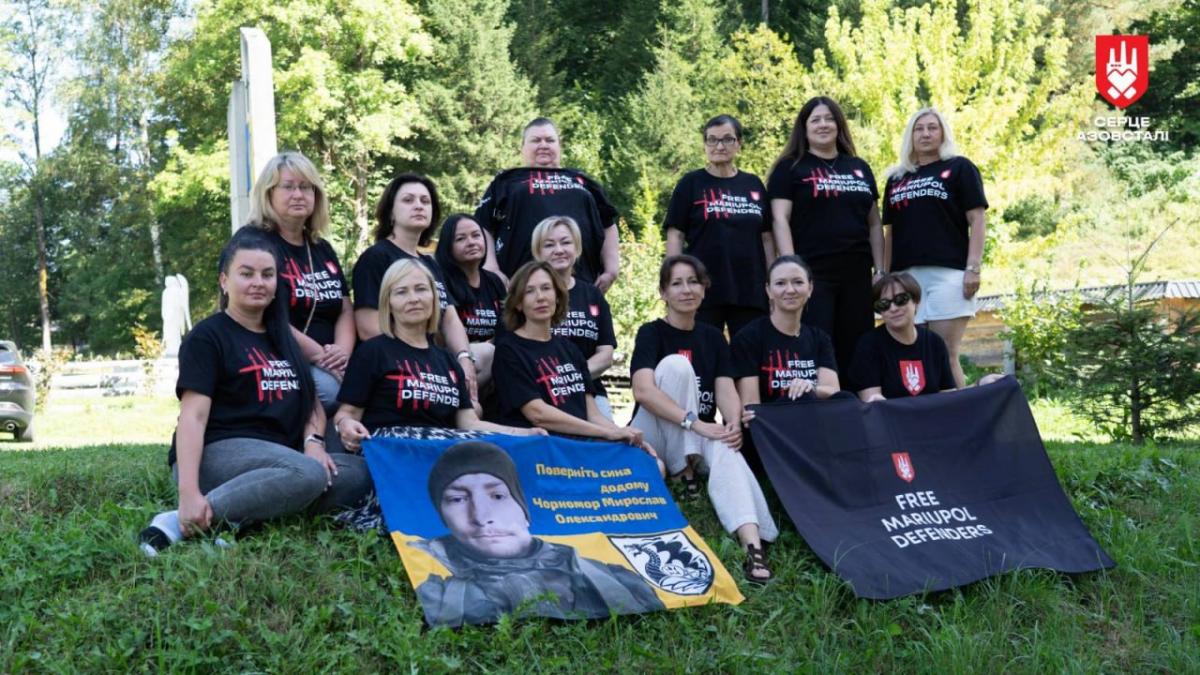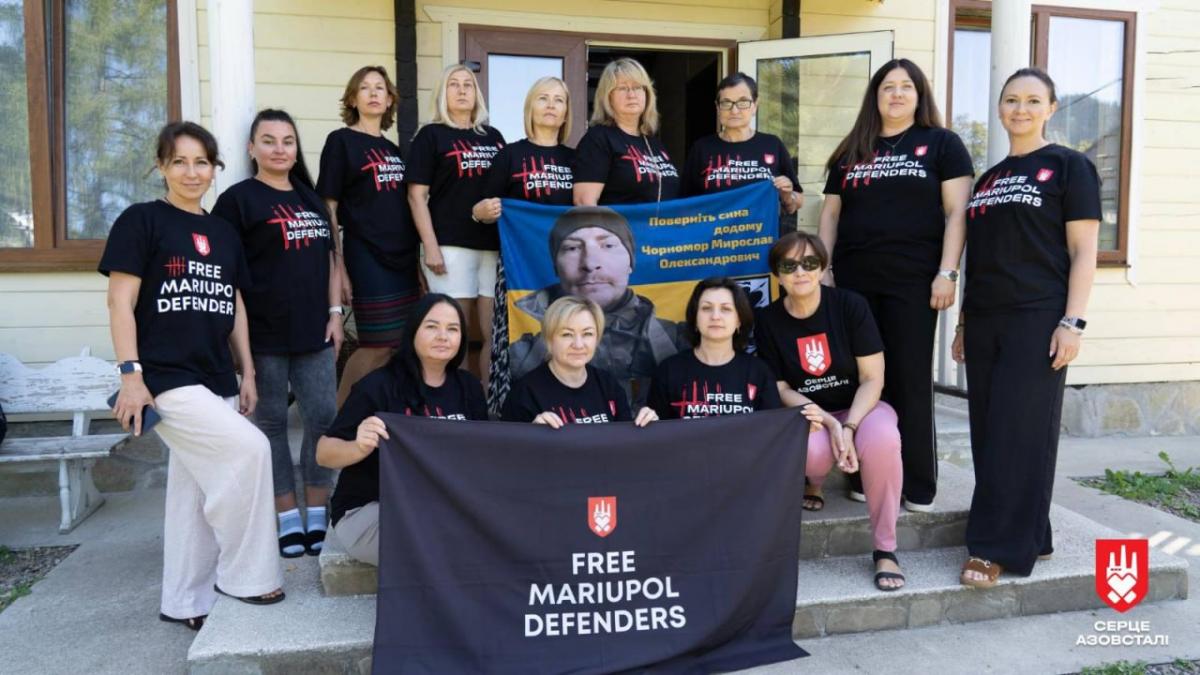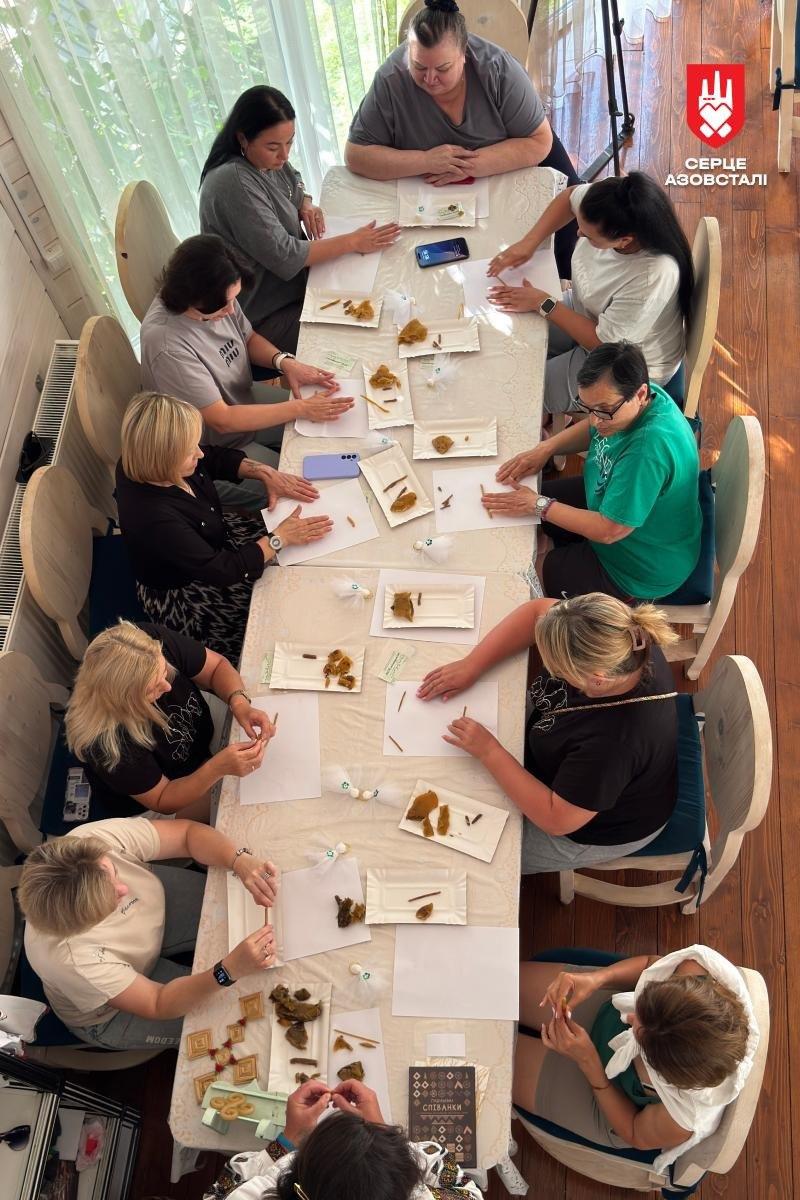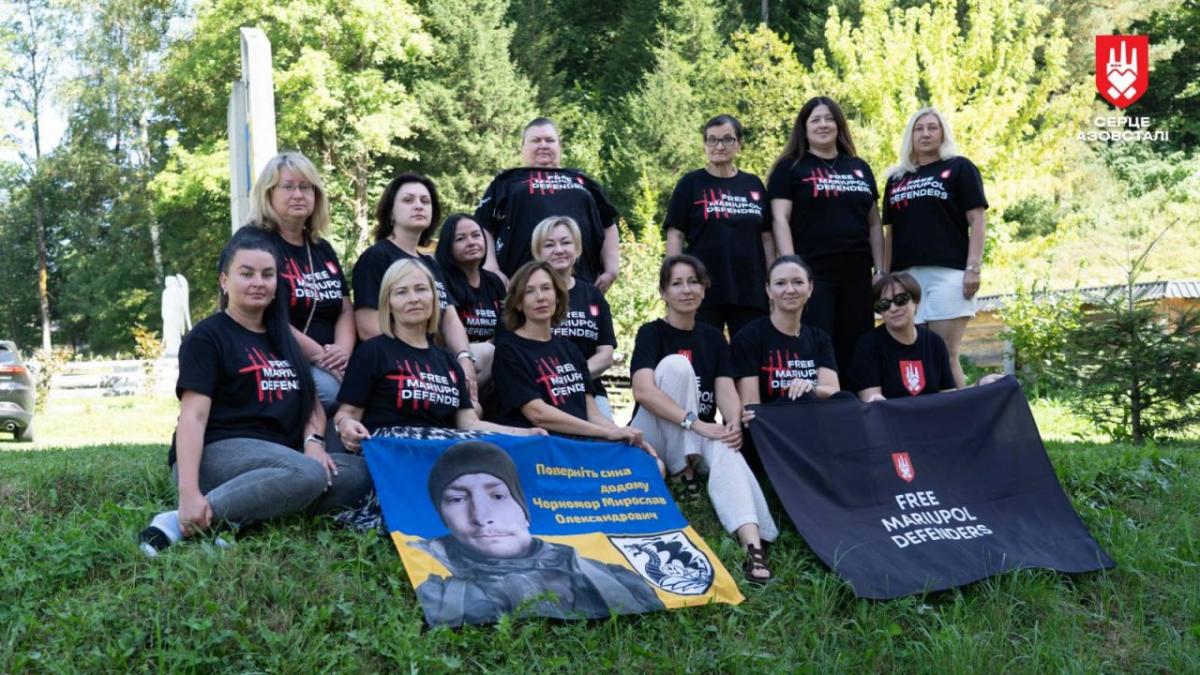“For two weeks, the participants underwent a program of psychological recovery.”, — write: www.unian.ua
For two weeks, the participants underwent a program of psychological recovery.
 The families of the defenders of Mariupol, who are in Russian captivity, took part in a retreat in the Carpathians, organized by the NGO “Heart of Azovstal” in cooperation with the Ministry of Defense of Ukraine. The event became part of the joint program of support for families of prisoners of war within the framework of the memorandum between the organization and the IOU.
The families of the defenders of Mariupol, who are in Russian captivity, took part in a retreat in the Carpathians, organized by the NGO “Heart of Azovstal” in cooperation with the Ministry of Defense of Ukraine. The event became part of the joint program of support for families of prisoners of war within the framework of the memorandum between the organization and the IOU.
For two weeks, the participants underwent a psychological recovery program that combined group therapy, work with crisis psychologists, recovery and resource practices, as well as master classes and outdoor activities.
“We have been working with the families of defenders for the third year and we see how important it is to maintain the mental health of those who are waiting. Because when the family has strength, it helps those who return from captivity to recover faster. This is the main goal of our program,” said Tetyana Maltseva, manager of the “Health” program of the Heart of Azovstal NGO.
The retreat took place with the participation of crisis psychologists and specialists from the Institute of Health Psychology, who taught families practical self-support tools and preparation for meeting loved ones after captivity.
 “For the Ministry of Defense, this cooperation is extremely important. “Heart of Azovstal” already has developed effective algorithms for helping families and those released from captivity. We see great potential in scaling this experience to make the system of support for military personnel and their relatives even more comprehensive,” emphasized Alla Bublyk, military psychologist, representative of the Department of Psychological Support and Rehabilitation of the Ministry of Defense.
“For the Ministry of Defense, this cooperation is extremely important. “Heart of Azovstal” already has developed effective algorithms for helping families and those released from captivity. We see great potential in scaling this experience to make the system of support for military personnel and their relatives even more comprehensive,” emphasized Alla Bublyk, military psychologist, representative of the Department of Psychological Support and Rehabilitation of the Ministry of Defense.
For mothers and wives of prisoners, this retreat became not only a time of recovery, but also a space of mutual support – a reminder that they are not alone in their waiting.
“You are not alone in this trouble. It is a great support when you see that there are people who understand, help and believe with you,” shares Larisa, the mother of a captured marine.
 We will remind you that the “Heart of Azovstal” project was founded by Rinat Akhmetov in 2023 to support the defenders of Mariupol and their families. During this time, the organization created an ecosystem of comprehensive support: physical and psychological rehabilitation, prosthetics, own apartments for defenders with I and II groups of disabilities, support in obtaining education and employment, etc.
We will remind you that the “Heart of Azovstal” project was founded by Rinat Akhmetov in 2023 to support the defenders of Mariupol and their families. During this time, the organization created an ecosystem of comprehensive support: physical and psychological rehabilitation, prosthetics, own apartments for defenders with I and II groups of disabilities, support in obtaining education and employment, etc.
